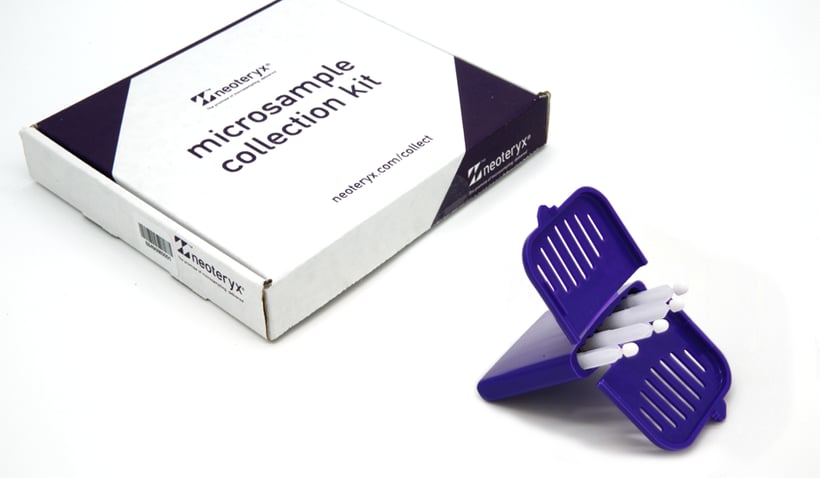Share this
people dropping out of clinical trials: what can you do about it?
by Neoteryx Microsampling on Aug 1, 2017 6:00:00 AM
 Clinical trials are the procedures for measuring the safety and effectiveness of health interventions. They are commonly known as randomized controlled trials (RCT). To avoid having people drop out or withdraw from clinical trials and to improve retention of participants throughout the full study, it will require an innovative trial procedure for a favorable outcome.
Clinical trials are the procedures for measuring the safety and effectiveness of health interventions. They are commonly known as randomized controlled trials (RCT). To avoid having people drop out or withdraw from clinical trials and to improve retention of participants throughout the full study, it will require an innovative trial procedure for a favorable outcome.
Reasons for People Dropping Out of Clinical Trials
-
Side effects
If the medication causes side effects like weight gain then a patient who struggles with obesity will withdraw before the trial period ends.
-
Lack of condition improvement
- If a patient joined a trial program to get treatment for a current ailment, then most likely they will withdraw before the trial ends if there is no improvement. -
Personal or family reasons
They include divorce, marriage, the death of a loved one, relocation, loss of transport, and changes in job status. -
Noncompliance
The study’s exhaustion can wear out the subjects resolve. This is as a result of a lengthy study, research medication, blood sampling, and follow-up visits. -
Missed visits
These can be as a result of forgetting or no follow-ups. The research team has the responsibility of contacting the study participants before and after a missed visit.
Other Reasons People Give for Dropping Out of a Clinical Trials:
- Misunderstood expectations
- Lack of condition improvement
- Fear and anxiety
- Lack of appreciation
- Financial constraints
- Inconvenient location
- Schedule conflict
- Change of residence
- Fear of the trial procedures (blood testing, medication, etc.)
Microsampling Improves Clinical Trial Subject Retention
Blood testing is a key component in clinical trials. Traditional venipuncture sampling demands patients travel to a specific location or a controlled environment (i.e., in a lab or clinic) to get their blood drawn by a phlebotomist, which can be an inconvenience.
Many people find venous blood extraction with via a needle in the vein to be unsettling; this can cause stress or anxiety and eventually lead to dropouts.
 However, dried blood microsampling with portable microsampling devices requires only a few drops (10µl) of blood drawn from a simple finger stick. Additionally, finger-stick microsampling doesn't require a trained phlebotomist to perform the sample collection.
However, dried blood microsampling with portable microsampling devices requires only a few drops (10µl) of blood drawn from a simple finger stick. Additionally, finger-stick microsampling doesn't require a trained phlebotomist to perform the sample collection.
It can be a self-administered sampling procedure that doesn’t need to happen in a controlled environment. With remote finger-stick sampling, people can perform the sample collection in any location and mail their samples to the research center labs for analysis.
Other Solutions for Retaining Clinical Trial Participants
- Compensation and recognition
- Commitment to the study
- Positive response to treatment
- Relationship with study staff
- Set expectations upfront during discussion
- Send reminders for upcoming visits
- Providing a patient friendly environment
Clinical trial subject dropout or withdrawal determines the success of a study. Uncomfortable procedures, inconvenience and a lack of proper communication can become burdensome and will frustrate your trial participants. The use of remote microsampling that can occur at home, work or any location will open doors to virtual clinical trials and help improve retention levels.
Have you seen our resource page on Decentralized Clinical Trials (DCTs)?
Image credits: Shutterstock, Trajan Scientific and Medical, Neoteryx
Share this
- Microsampling (206)
- Research, Remote Research (119)
- Venipuncture Alternative (105)
- Clinical Trials, Clinical Research (83)
- Mitra® Device (73)
- Therapeutic Drug Monitoring, TDM (51)
- Dried Blood Spot, DBS (39)
- Biomonitoring, Health, Wellness (30)
- Infectious Disease, Vaccines, COVID-19 (24)
- Blood Microsampling, Serology (23)
- Omics, Multi-Omics (21)
- Decentralized Clinical Trial (DCT) (20)
- Specimen Collection (18)
- Toxicology, Doping, Drug/Alcohol Monitoring, PEth (17)
- Skin Microsampling, Microbiopsy (14)
- hemaPEN® Device (13)
- Preclinical Research, Animal Studies (12)
- Pharmaceuticals, Drug Development (9)
- Harpera Device (7)
- Industry News, Microsampling News (5)
- Antibodies, MAbs (3)
- Company Press Release, Product Press Release (3)
- Environmental Toxins, Exposures (1)
- July 2025 (1)
- May 2025 (1)
- April 2025 (2)
- December 2024 (2)
- November 2024 (1)
- October 2024 (3)
- September 2024 (1)
- June 2024 (1)
- May 2024 (1)
- April 2024 (4)
- March 2024 (1)
- February 2024 (2)
- January 2024 (4)
- December 2023 (3)
- November 2023 (3)
- October 2023 (3)
- September 2023 (3)
- July 2023 (3)
- June 2023 (2)
- April 2023 (2)
- March 2023 (2)
- February 2023 (2)
- January 2023 (3)
- December 2022 (2)
- November 2022 (3)
- October 2022 (4)
- September 2022 (3)
- August 2022 (5)
- July 2022 (2)
- June 2022 (2)
- May 2022 (4)
- April 2022 (3)
- March 2022 (3)
- February 2022 (4)
- January 2022 (5)
- December 2021 (3)
- November 2021 (5)
- October 2021 (3)
- September 2021 (3)
- August 2021 (4)
- July 2021 (4)
- June 2021 (4)
- May 2021 (4)
- April 2021 (3)
- March 2021 (5)
- February 2021 (4)
- January 2021 (4)
- December 2020 (3)
- November 2020 (5)
- October 2020 (4)
- September 2020 (3)
- August 2020 (3)
- July 2020 (6)
- June 2020 (4)
- May 2020 (4)
- April 2020 (3)
- March 2020 (6)
- February 2020 (3)
- January 2020 (4)
- December 2019 (5)
- November 2019 (4)
- October 2019 (2)
- September 2019 (4)
- August 2019 (4)
- July 2019 (3)
- June 2019 (7)
- May 2019 (6)
- April 2019 (5)
- March 2019 (6)
- February 2019 (5)
- January 2019 (8)
- December 2018 (3)
- November 2018 (4)
- October 2018 (7)
- September 2018 (6)
- August 2018 (5)
- July 2018 (8)
- June 2018 (6)
- May 2018 (5)
- April 2018 (6)
- March 2018 (4)
- February 2018 (6)
- January 2018 (4)
- December 2017 (2)
- November 2017 (3)
- October 2017 (2)
- September 2017 (4)
- August 2017 (2)
- July 2017 (4)
- June 2017 (5)
- May 2017 (6)
- April 2017 (6)
- March 2017 (5)
- February 2017 (4)
- January 2017 (1)
- July 2016 (3)
- May 2016 (1)
- April 2016 (2)



No Comments Yet
Let us know what you think